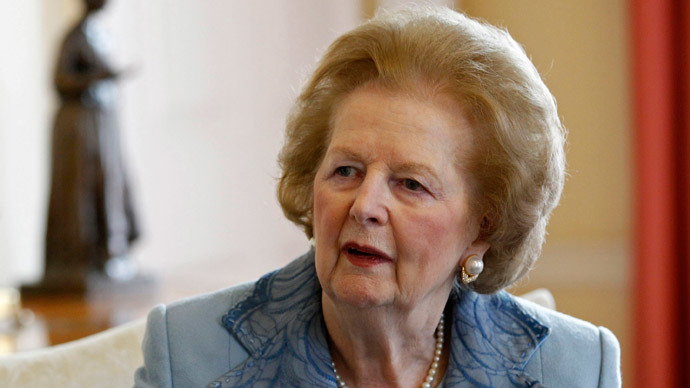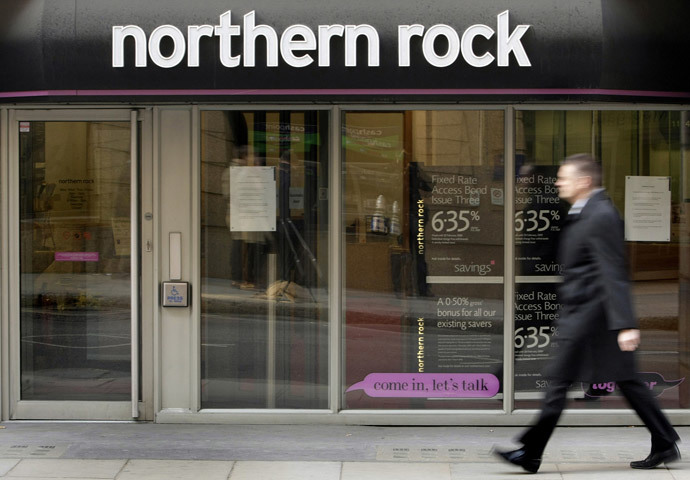The Iron Lady may be no more, but her poisonous free-market legacy lives on

Despite the undeniable devastation caused by late PM Margaret Thatcher and the free market fundamentalist ideology that bears her name, Thatcherism continues to dominate British society politically, economically and socially.
The way in which the British political establishment fawned over Thatcher upon her death split the country between those who considered her political legacy a poisonous one (this writer included) and those who believed that she changed Britain for the better.
As if any more evidence were needed that the former opinion of the Iron Lady’s legacy is the more credible of the two, the results of a recent study by a group of British academics makes the case inarguable. Sourcing data from over 70 pre-existing research papers into Thatcher’s decade as prime minister reveals that the “unnecessary unemployment, welfare cuts, and damaging housing polices” of the first-ever British female PM’s reign caused "the unnecessary and unjust premature death of many British citizens, together with a substantial and continuing burden of suffering and loss of well-being."
Alex Scott-Samuel, one of the authors of the report, said of the findings: “Towards the end of the 1980s we were seeing around 500 excess deaths each year from chronic liver disease and cirrhosis. We also know that there were 2,500 excess deaths per year as a result of unemployment caused by Thatcher's policies. And these premature deaths represent just the tip of an immense iceberg of sickness and suffering resulting from Thatcherism.”
Another damning indictment of Thatcher’s policies contained in the report is the huge rise in inequality which she presided over. In 1978, the year before she became prime minister, the wealthiest 0.01 percent in Britain earned 28 times more than the average income. In 1990 that ratio had climbed to an outrageous 70 times. Poverty meanwhile rose from 6.7 percent in 1975 to 12 percent in 1985.
The report’s significance in 2014 is the fact that despite the undeniable devastation caused by Thatcher and the free market fundamentalist ideology that bears her name, Thatcherism continues to dominate British society politically, economically and socially. The policy of austerity being implemented by the present Tory-led coalition government has Thatcher’s hands all over it. It is based on an ideological orientation towards big business, the banks and financial sector – in other words the rich – at the expense of the poor, currently being subjected to an attack on their incomes, benefits, wages and conditions that is almost medieval in scope. Indeed, rather than working toward the objective of eradicating poverty in society, this is a government that appears intent on eradicating the poor.

When asked, Thatcher claimed that her greatest achievement in politics was the emergence of New Labour under Tony Blair. In 1994 Blair had assumed the leadership of the Labour Party and immediately set about steering it on a rightward course, having decided that rather than resist the encroachments of the free market in the interests of social justice, Labour would from now on embrace free market nostrums, placing more emphasis on wealth creation than wealth redistribution. The upshot was the rebirth of a party that was originally founded to champion the needs of the millions as a party of millionaires. The results were staggering. In 1997, the year New Labour came to power, the 1,000 richest people in Britain were worth £98 billion. Ten years later, their wealth had climbed to just over £300 billion – a 204 percent increase. In 2007, 3,200 bankers in the City of London shared £8.8 billion in bonuses, while 2.5 million children and 2.9 million pensioners were living in poverty. For a Labour government these are damning figures and the fruits of Thatcher's legacy.
The global economic crisis hit the British economy in the late summer of 2007 with the collapse of Northern Rock bank, one of the country’s biggest mortgage lenders, resulting in panicked customers of the bank queuing up to withdraw their money in scenes reminiscent of the Great Depression of the 1930s. It was a financial crisis inextricably linked to the anarchy of the free market doctrine which Margaret Thatcher championed. The destruction of Britain’s industrial base throughout the 1980s, heroically resisted by the British trade union movement in a series of epic industrial disputes, paved the way for the emergence of the City of London as the engine of the economy. Short-term profits and the need to maximize shareholder dividends in a virtual economy of stocks and securities on the financial markets supplanted long-term sustainable growth and investment in a real economy based on production. This led inexorably to the gross inequality that has earned Britain the dubious distinction of being the most unequal society in the developed world after the United States.
You might think that by 2014 the political class in the UK would have learned from the economic disaster caused by out of control market forces, taking steps to rein in the City of London to end the excess and greed, which under Thatcher’s baneful influence were held up as virtues to be celebrated rather than a scourge to be resisted. If so, you’d be wrong. Barclays Bank recently announced plans to increase its bonus payments by 10 percent this year to £2.4 billion at the same time as it announced it will be cutting 12,000 jobs. Worse, it follows revelations that the financial sector in the UK has paid out twice as much in bonuses to its executives since 2008 than it has in tax.
Meanwhile, at the other end of the economic and social spectrum, 13 million people are officially classed as living in poverty in Britain in 2014. It confirms that while Margaret Thatcher may be dead, her political legacy remains very much alive.
Until it is ended, the needs of the majority of people in the country will continue to be denied by the greed of the rich.
The statements, views and opinions expressed in this column are solely those of the author and do not necessarily represent those of RT.
The statements, views and opinions expressed in this column are solely those of the author and do not necessarily represent those of RT.













